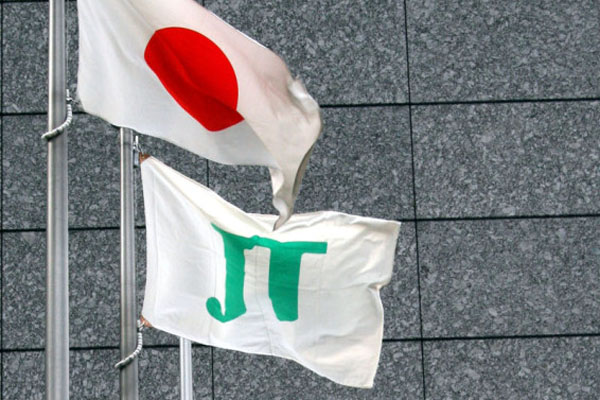Japan Tobacco Inc.’s domestic cigarette sales volume during the nine months to the end of September, at 79.7 billion, was down by 1.9 percent on that of January-September 2015, 81.3 billion.
In announcing its consolidated results, JT said its domestic sales volume had declined because of lower industry volumes and because of the negative impact of retail price increases on certain products, including Mevius, partly offset by the acquisition of Natural American Spirit.
Core domestic cigarette revenue during January-September, at ¥485.5 billion, was increased by 1.5 percent from that of January-September 2015, ¥478.2 billion, driven by the retail price increases and the positive impact of the acquisition of Natural American Spirit.
At the same time, adjusted operating profit during January-September, at ¥199.0 billion, was up by 0.7 percent on that of January-September 2015, ¥197.6 billion, due to the higher core revenue and the effects of measures taken to strengthen competitiveness, partly offset by increased sales promotions.
Meanwhile, Japan Tobacco International’s total cigarette and cigarette-equivalent shipment volume (including fine cut, cigars, pipe tobacco and snus, but excluding contract manufactured products, waterpipe tobacco and emerging products) during the nine months to the end of September, at 304.2 billion, was increased by 2.9 percent on that of the January-September 2015 period, 295.6 billion.
Within that total, GFBs (global flagship brands) shipment volume was increased by 5.3 percent to 216.3 billion.
The volume growth was driven mainly by JTI’s performances on the markets of Brazil, France, Germany, Iran, Italy, Kazakhstan, Korea, countries of the Middle East and South East Asia, the Philippines, and Turkey; as well as by acquisitions and inventory adjustments in the first quarter.
GFB shipment volume growth was led by brand building initiatives, market share gains and the addition of Natural American Spirit. Market share was said to have continued to grow in the key markets of France, Italy, Spain, Taiwan and the UK.
JTI’s core revenue and adjusted operating profit fell by 7.8 percent and 13.2 percent respectively to ¥873.1 billion and ¥285.0 billion. But in US dollars, core revenue and adjusted operating profit, at constant currency, grew by 10.9 percent and 15.4 percent respectively, driven by positive volume and robust pricing.
‘Business investments also increased, particularly in seeding markets and emerging products,’ JT reported.
‘On a reported basis, core revenue increased 3.1 percent, as strong business momentum offset the impact of currency fluctuations. Reported adjusted operating profit declined 3.3 percent, due to unfavorable currency movements.
‘In Japanese Yen, core revenue and adjusted operating profit decreased 7.8 percent and 13.2 percent respectively affected by the appreciation of the currency against US Dollar.’
Including the results of its other businesses, JT’s January-September revenue fell by 4.1 percent to ¥1,618.5 billion while its adjusted operating profit fell by 6.6 percent to ¥476.5 billion.
Operating profit was increased by 8.5 percent to ¥494.6 billion.
JT’s president and CEO, Mitsuomi Koizumi, said that the company’s international tobacco business had continued to deliver strong results, led by market share gains, volume growth and robust pricing.
“This solid performance has allowed us to further revise our profit forecast upwards,” he said.
“Looking ahead, we will further accelerate investments, notably in GFBs, seeding markets and emerging products, with the aim of strengthening our business to continue achieving sustainable mid- to long-term profit growth.
“Domestically, our business performance remains stable and is underpinned by initiatives to strengthen our product portfolio and brand equity, leading to steady profit growth.
“Against the backdrop of an increasingly challenging environment surrounding the JT Group, we are confident that our solid ongoing business will deliver robust profit growth at constant currency.”

